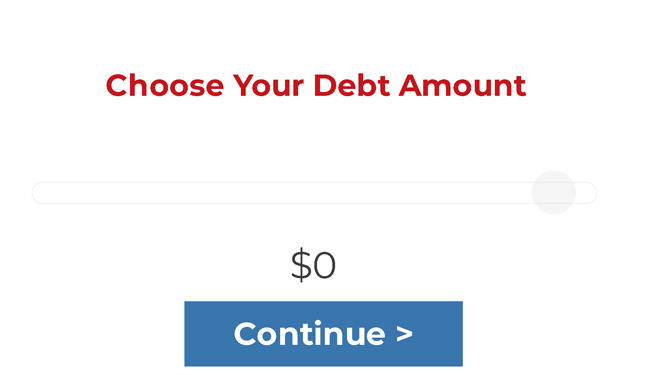Do you have high-interest credit card debt that you’re looking to pay down? There are several debt consolidation options available that could help you save money and improve your credit score.
Debt can be a major burden, but there are ways to pay it down and save money at the same time. Balance transfer credit cards let you transfer debt from other sources and usually have a low introductory interest rate. Debt consolidation loans are another option, where you take out an unsecured personal loan to pay off your other debts, often at a lower interest rate. By taking advantage of these methods, you can get on top of your debt and start saving money.
Factors to consider when consolidating debt
Are you struggling with debt? Are you trying to figure out the best way to consolidate your debt so you can get back on track?
There are a few things you need to consider first. You need to commit to a strategy that is going to keep you from falling back into debt. Choosing the right option based on your situation could help you save thousands of dollars or make the process much easier based on your personality or circumstances.
When you are trying to decide between a debt consolidation loan and a balance transfer credit card, there are several things you should consider. Here are six factors that can help you decide which option is best for you.

Interest rates
When you are comparing credit cards and debt consolidation loans, the first thing you should look at is the interest rate. Balance transfer credit cards usually have a period of time where you will not be charged any interest, but after that introductory period, the rates are generally higher than personal loan rates. However, if you have good credit, then this might not be as big of an issue, says credit expert John Ulzheimer.
With good credit, you can find a variety of personal loans with interest rates in the single digits. Although it may be difficult to find a 0 percent APR personal loan, as of July 20, 2022, the average interest rate for a personal loan is around 10.60 percent while the average credit card interest rate is above 18 percent. Therefore, although there is no such thing as an “interest-free” personal loan, having good credit can help you get a loan with a more manageable interest rate.
The length of time that a balance transfer credit card offers 0% APR is an important factor to consider. Determine what your total amount of debt is, and calculate the average payment you would need to make in order to pay it all off before the 0% interest period expires. For example, if you have $5,000 in credit card debt and are offered 0% APR for 18 months, could you afford to pay $278 per month during that timeline to become debt-free?
There are a few things to consider when trying to pay off debt. One option is a balance transfer card, but you must be able to make the monthly payments. Another option is a personal loan.
The interest rate that you pay on a loan is the primary factor in determining your monthly payment. Choosing an option with a lower interest rate can help keep your payments down and give you a better chance of paying your debt off.
Additional fees
When you transfer your balance, you may have to pay a one-time fee. This fee can be up to 5% of the total amount of debt you transfer. Keep this in mind when you’re considering a balance transfer.
If you’re looking to transfer a balance from one credit card to another, it’s important to compare interest rates and fees. A balance transfer fee may be worth it if it’s lower than the interest rate you’re currently paying. However, keep in mind that some cards charge intro APR rates only on balance transfers made within the first 60 days of account opening.
Personal loans can be a great way to finance big purchases or consolidate debt. But before you take out a loan, make sure you understand all the fees involved.
One fee you may encounter is a loan origination fee. This is a one-time charge assessed by some lenders when you first apply for a loan.
Origination fees are one of the many costs that come with taking out a loan. In some cases, these fees can be as high as 8 percent of the total loan amount. This means that if you borrowed $5,000 to consolidate your credit card debt, you might only receive $4,600 after the origination fee is deducted from your balance.
Paying fees can be a drag, but sometimes it’s worth it to secure a lower interest rate or other favorable terms. Keep an eye out for fees so you don’t pay more than you have to, but don’t be afraid to shell out a little extra if it means getting a better deal in the end.
Fixed rates and payment schedule
There are many benefits to consolidating your debt with a personal loan. One of the main advantages is that the interest rate is fixed, so you’ll always know how much your monthly payments will be. This can make budgeting much easier. Another benefit is that you’ll have a set date when the loan will be paid off, so you can plan accordingly.
However, some certified financial experts have expressed their preference for balance transfer credit cards because they are more flexible than a personal loan.
If you’re worried about losing your job or having a financial emergency, a 0% interest rate on your credit card balance transfer might give you some flexibility. Although you’ll likely end up paying more in the long run, at least you won’t have to worry about making fixed monthly payments.
There are a few things to consider when you’re trying to consolidate your debt. What works for one person might not be the best solution for another. It all depends on your unique situation. If you need help with budgeting and want fixed payments, a personal loan is a good option.
You’ll need to find a repayment strategy that works for you. A personal loan with fixed monthly payments may be a good option, or you may prefer the flexibility of a balance transfer credit card. Consider what will work best for you and make a plan to pay off your debt.
Credit score

Credit utilization is one of the key factors in determining your credit score. If you transfer all of your credit card balances to a new card, your credit utilization on that card will be close to 100%. This could have a negative impact on your credit score. Additionally, scoring models tend to view revolving debt negatively. So if you keep transferring your debt from one card to another, your score could go down even further.
Regarding a debt consolidation loan, one potential benefit is that your credit utilization rate could go down to 0%. This could help improve your credit score. However, you will still have debt, just in the form of a loan. So, if you don’t make timely payments, your credit score could actually go down.
It’s important to keep your credit utilization ratio low. This is one of the most important factors in your credit score. A high credit utilization ratio can lower your credit score and make it more difficult to get loans with favorable interest rates in the future. You can improve your credit utilization ratio by paying off debts and avoiding unnecessary new borrowing.
Credit requirements
Debt consolidation loans and balance transfer credit cards can be a great way to improve your financial situation. Both options offer low-interest rates and terms to individuals with good or excellent credit. However, even those with “good” credit scores (FICO scores from 670 to 739) may be approved for either option depending on the lender. If you’re looking to consolidate your debts or transfer a balance, compare your options and choose the best one for you.
Even with a low credit score, there are still some balance transfer credit cards you may be able to qualify for. However, your options will be more limited than those with a higher credit score. There are some secured credit cards with balance transfer offers available, but they typically do not offer 0 percent APR for a limited time. Instead, you may be required to put down a cash deposit as collateral.
There are two sides to every story, and the same can be said for debt consolidation loans. While it is possible to qualify for a loan with bad credit, you can expect to pay a higher interest rate. However, a bad credit loan could still save you money if your new interest rate is lower than the rates you are currently paying.
It is important to know your credit score and how it will affect the interest rates you are offered. A higher credit score means you will be able to get better terms and rates.
Types of debt
Debt consolidation loans and balance transfer credit cards can both be helpful options when you are trying to pay off debt. However, it is important to consider the type of debt you have when making a decision about which option is best for you.
Generally speaking, debt consolidation loans are a good option if you have multiple types of debt to consolidate. This is because consolidating your debt into one loan can help you save money on interest and make it easier to pay off your debt.
Your credit mix factors into your credit score. Therefore, having multiple types of debt can improve your credit score.
Debt consolidation loan vs. balance transfer credit card: Which one should I get?
There are two popular options for dealing with high-interest debt: debt consolidation loan vs. balance transfer credit card. Both have their advantages and work best in different situations. It’s important to understand the difference between the two before making a decision.
When a debt consolidation loan is preferable
- For those who need to pay down debts over a long period of time, or up to 10 years.
- People who want the security of a fixed interest rate and fixed monthly payments.
- For those who have the temptation to overspend with credit cards, this can be a way to stop using them.
When a balance transfer credit cards work best
- If you have a small amount of debt that you can pay off during your credit card’s 0 percent APR introductory period, it is likely that this will last for 12 to 21 months.
- Disciplined individuals who know when to put down the plastic and stick to cash even signing up for a new one.
The bottom line

If you’re looking to get out of debt, there are a few different options you can choose from. A debt consolidation loan or balance transfer credit card can both work well, but it’s important to have a plan in place no matter which route you go. Learning to live on less will be the key to your success.






